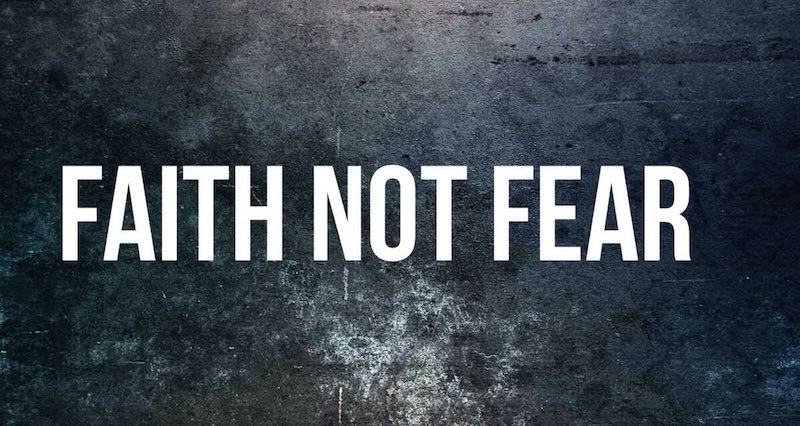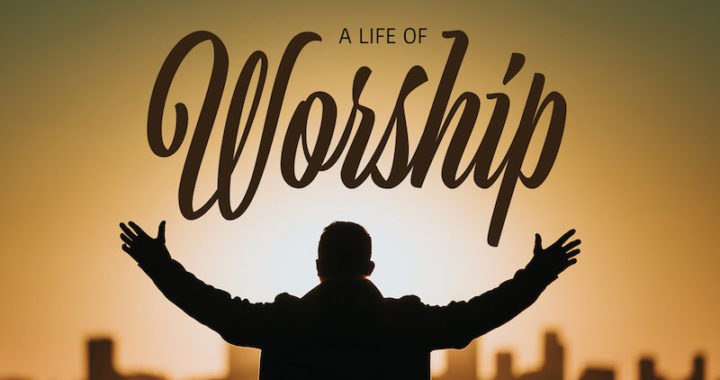How do you react to fear? How do you respond to uncertain situations that cause you to feel vulnerable? How do you react when the actions of others put your own life in danger?
In this week’s Torah Portion, Jacob found himself in a situation that caused him to feel that his life and his whole household were in danger. The incident that triggered this situation started with the violation of Jacob’s daughter Dina by Shechem the Hivite. In order to take their sister back and redeem the family honor, two of Jacob’s sons killed all of the men of the city of Shechem. Jacob then responded to his sons with the following words of rebuke and concern:
Then Jacob said to Simeon and Levi, “You have brought trouble on me by making me odious among the inhabitants of the land, among the Canaanites and the Perizzites; and my men being few in number, they will gather together against me and attack me and I will be destroyed, I and my household.” But they said, “Should he treat our sister as a harlot?” – Gen. 34:30-31
Simeon and Levi felt like they needed to defend their sister, fight for their family honor, and punish those connected to their sister’s violation, however, Jacob was not at peace. In fact, Jacob was very anxious and concerned.
Jacob and his family had recently returned to the Promised Land after having sojourned in Padan Aram for twenty years. Jacob had barely finished making peace with his father-in-law Laban and then separately with his twin brother Esau when Jacob now felt like he was again in a hostile position with those around him. Jacob believed that the actions of his sons in murdering all of the men of Shechem would cause the others in the land to rise up and kill him and his family.
Was Jacob’s fear justified? How should Jacob have respond in this situation? How would you respond if you were in Jacob’s shoes?
Reacting to Fear
It is interesting to read the immediate reaction of Jacob to his sons. Jacob’s initial response was to relate how the situation would affect him: “You have brought trouble on me by making me odious among the inhabitants of the land,…” Jacob was immediately concerned with how everyone in the surrounding cities and tribes would react to the newcomers in the Land. Jacob had wanted to hang low, make friends in the land, and enjoy raising his family. Instead, Jacob now had to worry if the surrounding peoples would attack him. Jacob had been running from fear of his brother for the past twenty years. He had finally reconciled with Esau but now he had new enemies. Jacob felt vulnerable.
Jacob also viewed himself and his household as being unable to properly defend themselves from the surrounding peoples saying: “…my men being few in number, they will gather together against me and attack me and I will be destroyed, I and my household.” (Gen. 34:30) Jacob viewed his collective defenses according to the man power in his family. Jacob had returned to the Promised Land as two companies of peoples (Gen. 32:7) and with great riches, however, he felt completely vulnerable and without any defenses. If the surrounding peoples wanted to take vengeance on them, Jacob felt defenseless.
In the natural, we can easily identify with Jacob’s situation. He and his household were new in the Land and they had no real tribal coalitions with the locals except for the people whom Jacob’s sons just murdered. Jacob feared for his life and for his household. Many of us would feel the same way. How should one respond in this type of situation?
Arise and Go Up
More than likely, none of us will face the exact same scenario that Jacob faced with his family, however, we all face circumstances beyond our control that can cause us to fear for one’s life together with one’s family or community. Thankfully, in Jacob’s situation God spoke directly to him and told him the next steps to take:
Then God said to Jacob, “Arise, go up to Bethel and live there, and make an altar there to God, who appeared to you when you fled from your brother Esau.” – Genesis 35:1
God understood exactly what Jacob was facing and instructed Jacob to arise and go up to Bethel. Too often we wallow in our misery and desperate situations but as we see in this situation with Jacob, God says to go up and worship Him.

Half of the battle with fear is getting the focus off of ourselves and on to the One who can do immeasurably more than we could ask or imagine. God told Jacob to arise, go to Bethel, and build an altar to the God who appeared to him when he fled from Esau. Why did God give Jacob this particular command?
Remember the Power and Promises of God
Jacob was running scared again, however, unlike twenty years prior when he fled in fear from his brother Esau as a single man, He now had four wives and eleven children. All of this being true, God was reminding Jacob that just like he met him on the journey to Padan Aram and took care of him as He promised when he ran from Esau, He would do it again this time. Jacob did not need to be afraid. Jacob needed to simply worship God and trust Him.
Whenever we face challenging and difficult situations in life we need to look to God and not to ourselves. Jacob had immediately considered his own strength and the small numbers in his family when considering the retaliation of the peoples around them. God directed Jacob back to the true source of his strength and told him to obey His voice and worship the God whom he had first met at Bethel. This is such a wonderful lesson of faith in the midst of circumstances beyond our ability. We will all certainly face obstacles and enemies greater and stronger than ourselves and our means along the way. This account of Jacob and his situation reminds us to always worship God first with our lives and focus on Him, not ourselves.
The Terror of God
Jacob obeyed the word of God which he had spoken to him at that time and he gave his family specific instructions in keeping with the command of the LORD:
So Jacob said to his household and to all who were with him, “Put away the foreign gods which are among you, and purify yourselves and change your garments; and let us arise and go up to Bethel, and I will make an altar there to God, who answered me in the day of my distress and has been with me wherever I have gone.” So they gave to Jacob all the foreign gods which they had and the rings which were in their ears, and Jacob hid them under the oak which was near Shechem. As they journeyed, there was a great terror upon the cities which were around them, and they did not pursue the sons of Jacob. So Jacob came to Luz (that is, Bethel), which is in the land of Canaan, he and all the people who were with him. He built an altar there, and called the place El-bethel, because there God had revealed Himself to him when he fled from his brother. – Gen. 35:2-7
God had called Jacob to build an altar and worship Him at Bethel, the house of God. Jacob instructed his family to put away from them any false or foreign gods and to purify themselves in preparation for the journey to Bethel. In response to the obedience of Jacob and his family to the word of the LORD, the terror of God fell on all the peoples around them.
A Life of Worship
Too often we limit God’s power in our lives because we act in fear and not faith. When we strive in the flesh and react to our enemies in the flesh we will fight with the weapons of this world. When we walk in faith together with the God of heaven and earth and worship Him in accordance with His Word, we give room for God to prove His power in this world in a manner which is supernatural. We need to learn to listen to the voice of God in every situation and seek first to worship Him with our lives. In doing so, we will allow God to take care of situations that are beyond our control and to eliminate all fear. Worship helps us remember to whom we belong and invites God to fight on our behalf.

In the New Testament we are reminded to continually rejoice in the Lord and to not be anxious. We must seek and choose this path in order to live a life with God at the lead:
Rejoice in the Lord always; again I will say, rejoice! Let your gentle spirit be known to all men. The Lord is near. Be anxious for nothing, but in everything by prayer and supplication with thanksgiving let your requests be made known to God. And the peace of God, which surpasses all comprehension, will guard your hearts and your minds in Yeshua the Messiah. – Philippians 4:4-7
The peace of God in our lives is only possible as we choose to worship Him with our lives and lay everything at His feet. This is not a one time event but a continual way of life that is intent on trusting Him. A life of worship of the God of heaven through the Messiah will bring peace into our lives and the lives of our family members while allowing the power and protection of God to surround us in our communities.
Shabbat Shalom!
If you enjoyed reading this article, share it today with friends! We also invite you to sign up for our weekly Torah Portion commentary on the sidebar to the right.
Help keep our weekly commentaries free and available to all. Click here to donate today:
*All Scripture take from NASB Copyright © 1960, 1962, 1963, 1968, 1971, 1972, 1973, 1975, 1977, 1995 by The Lockman Foundation
Torah Portion: Gen. 32:4-36:43
Haftara: Obadiah 1
Return to Torah Portion Homepage
Copyright Jewels of Judaism. All rights reserved 2019


